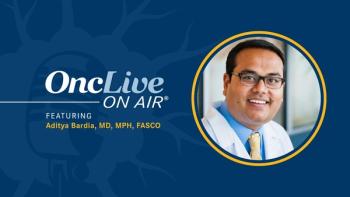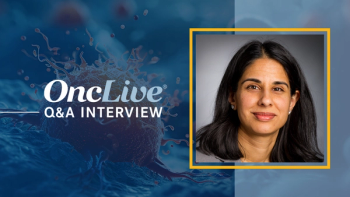
Dr. Wei on Benefits of Subcutaneous Pertuzumab/Trastuzumab in HER2+ Early Breast Cancer
Mei Wei, MD, discusses the benefits of subcutaneous administration of pertuzumab and trastuzumab in patients with HER2-positive early breast cancer.
Mei Wei, MD, an internal medicine specialist at the University of Utah Health, discusses the benefits of subcutaneous administration of pertuzumab (Phesgo) and trastuzumab (Herceptin) in patients with HER2-positive early breast cancer.
The concept of moving from administering these agents through a transfusion to delivering them subcutaneously is appealing, according to Wei. A transfusion of pertuzumab and trastuzumab and other chemotherapy infusions can exhaust patients and require them to stay in the hospital. Therefore, a subcutaneous delivery method may be more favorable for the patient and the hospital, Wei says.
Additionally, the transfusion of pertuzumab can induce adverse reactions and cause further stress for patients, physicians, and nursing staff, Wei adds. A subcutaneous strategy is more convenient for patients, can save time, and help to avoid adverse reactions, Wei concludes.



































